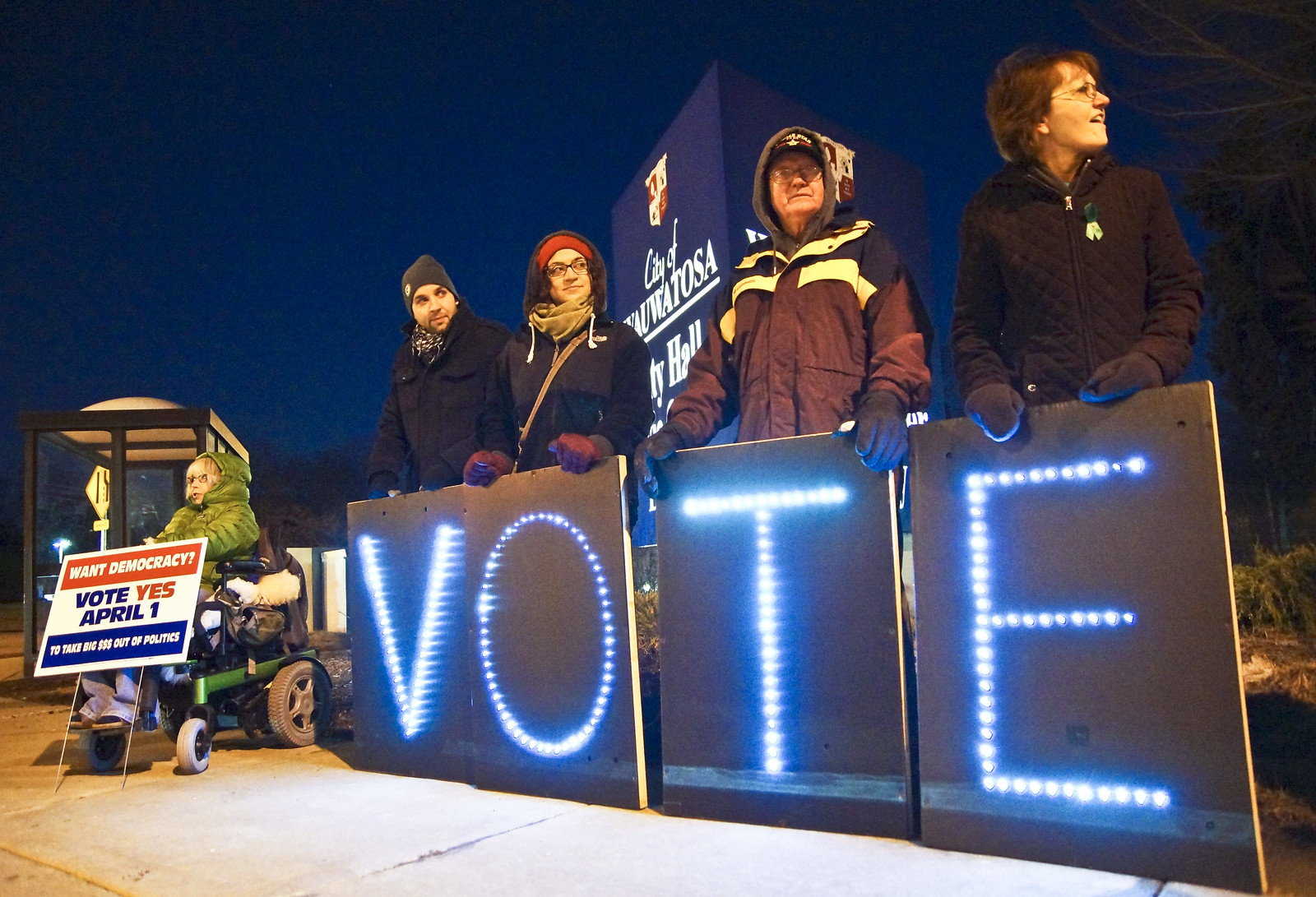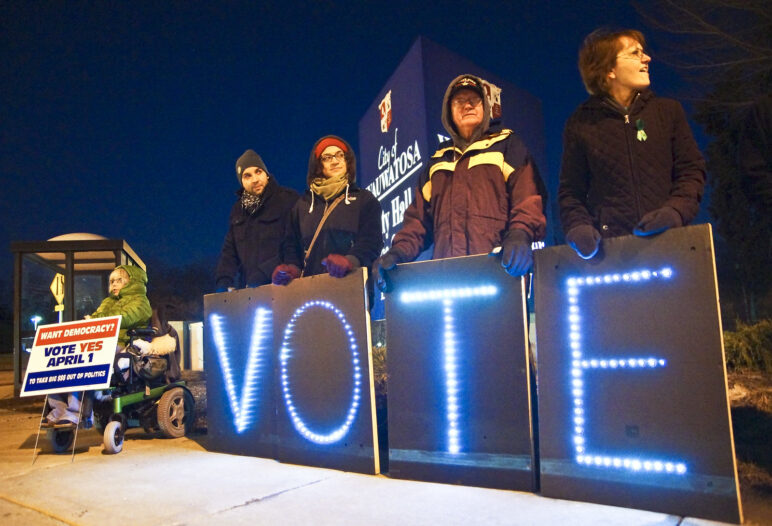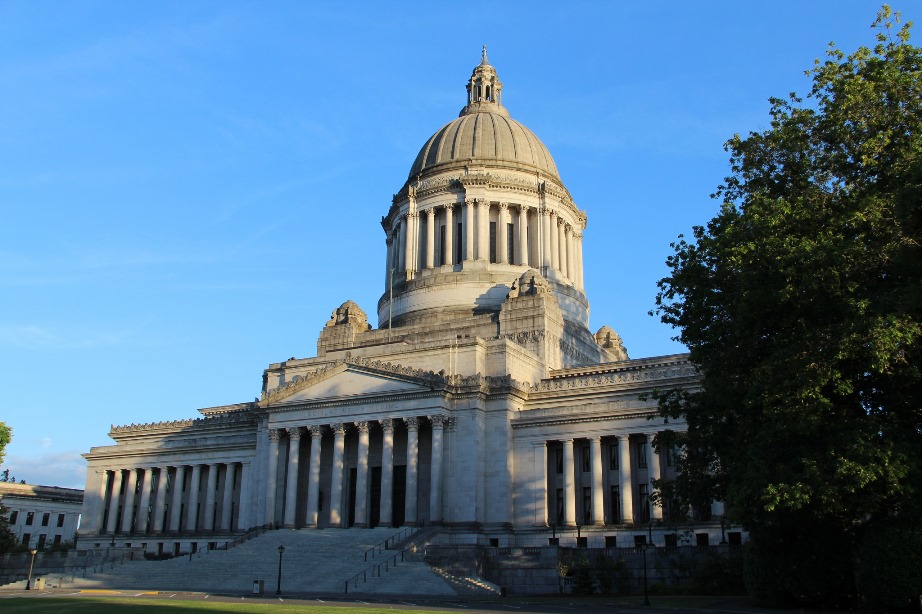Author’s note: HB 1932 passed out of the House on February 8, 2024, 52-45. HB 2250, the VOICES Act, did not pass out of the House Rules committee before a February 13 deadline.
Washington State leaders are eyeing a suite of democracy and elections upgrades that would help ensure representation of communities, boost voter turnout, streamline administrative procedures, and offer more diverse candidate choices to advance the priorities of everyday Washingtonians.
The legislature has considered ranked choice voting, moving to even-year elections, and other improvements in the past, gaining familiarity with these reforms although not yet passing them. But interest in and execution of such advances is growing across the US, with jurisdictions from Alaska to Arizona, Cambridge, Massachusetts, to Portland, Oregon, offering examples of their benefits in action. The issues before Washington lawmakers are gaining the momentum they need that may finally usher them across the finish line in 2024.
Smoothing the path for local governments wanting to adopt ranked choice voting
Washington legislators face a different opportunity regarding ranked choice voting (RCV) than they did in years past. The question is no longer if Washington will use RCV, but rather how the state will use it. Will it be inconsistent, varying from one county to the next? Or will it follow choreographed steps based on what we’ve learned works well?
Washington state law prohibits most local jurisdictions—except for charter cities and counties, like Seattle and Clark County—from changing their election code. This restriction means that they have been prevented from using systems like RCV.
In June 2023, however, the Washington State Supreme Court issued a ruling that specified that ranked choice voting is a remedy for violations of the Washington Voting Rights Act (WVRA). Because changes to local laws under the WVRA are allowed regardless of other state laws, the ruling opened the door for any governing body—from school district to city—to adopt RCV in response to a violation or potential violation of voting rights, as defined by the WVRA.
This pathway for opting into RCV is an important acknowledgement of the power of the voting method to improve representation of community interests. Yet it could result in a wide variety of implementation procedures and voter education materials across the state, with each county effectively inventing its own wheel of getting RCV up and running for the community.
HB 2250 (and companion SB 6156), the Washington VOICES (Voting Options, Implementation, Compliance, Education, and Standards) Act, sponsored by Rep. Gregerson, would clarify standards for local governments and convene a workgroup to help the Secretary of State create statewide guidelines for RCV implementation. The legislation would improve efficiency and consistency for local election administrators while ensuring that voters have the tools they need to make their voices heard.
Boosting voter turnout by allowing local elections in high-turnout years
State law in Washington currently requires cities and towns to hold their regularly scheduled elections for local offices, such as mayor and city council, in odd-numbered years, when voter turnout rarely rises above 40 percent. Turnout in even-numbered years, in contrast, is often double that of odd-numbered years, including for local races. What’s more, national studies have shown that voters tend to be better represented by leaders elected in even years.
Three bills will address this issue this session: SB 5723, sponsored by Sen. Valdez (and companion HB 1882, sponsored by Rep. Farivar), would amend the state’s election code to allow cities and towns to hold elections in even years if they choose. This creates the option for more local governments to follow the example of King County, whose voters approved a switch to even-year elections in November 2022. Voters in the state’s largest county will soon enjoy fewer campaign cycles to track and leaders who have won support from more of their constituents.
HB 1932, sponsored by Rep. Gregerson, also provides that option but goes marginally further: if a jurisdiction’s turnout dips below 40 percent in four consecutive odd-year general elections (i.e., across eight years), the switch to even-year elections is mandated. Her legislation would also apply to school district and port authority elections, not just cities and towns. [Author’s note, 1/17/24: House Bill 1932 passed out of the House State Government and Tribal Relations Committee on Friday, January 12, with bipartisan support, with amendments that removed the mandate and exempted judges due to a conflict with another state law.]
Either of these bills would go a long way toward ensuring that local electeds have support from more of the local population—that winners share residents’ values and priorities when making decisions that impact everyday life in their town.
Diluting Big Money’s influence by empowering small donors
Back in 2015, the city of Seattle adopted democracy vouchers, an innovative tool to lessen the influence of outsized contributors in political campaigns by giving more power to ordinary constituents. For candidates, it established more stringent disclosure rules and other good-governance measures, while also creating pathways for more people to run for office without depending on personal deep pockets or big campaign donors. The program has broadened participation in elections, helping create more diverse candidate and donor pools and increasing opportunities for small donors to engage with candidates and make their priorities known—again, changing who can win office and how aligned they are with the values of much of the public.
Now, legislators have an opportunity to expand that program across Washington State: HB 1755, sponsored by Rep. Farivar, would create a statewide democracy voucher program for state legislative district races. This means each Washingtonian eligible to make campaign contributions would receive four $25 vouchers to support the candidate(s) of their choice for the state house and senate, increasing their influence against that of special interests and wealthy donors.
And more: Honoring voting rights for incarcerated Washingtonians and protecting voters’ ballots
While Sightline hasn’t done in-depth research on these topics, there are two other priorities that our democracy partners are advancing in the 2024 legislative session. First, restoring voting rights for Washingtonians in the carceral system by only revoking them for crimes punishable by death (HB 2030), ensuring that Washington citizens can vote even when incarcerated. Second, ballot signature curing reform, to create a standardized process for election administrators to fix ballot errors (SB 5890), which disproportionally impact people of color and young voters. These measures would help us move towards a democracy that values all people and all votes, regardless of race, age, or income.
In sum, the governing institutions that shape our everyday lives are made up of people whom voters elect into office. When our elections operate such that they privilege special interests or wealthy donors or extremists, those groups’ priorities skew our institutions to serve them—at the cost of “we the people.”
But when our elections systems are working well for voters and encouraging participation and accountability, it can help people win office who share the public’s priorities and will work toward relevant solutions, from pollution to healthcare, housing affordability to education to good jobs. State leaders have several opportunities this legislative session to improve our elections—and in turn, to better serve people across the Evergreen State.












